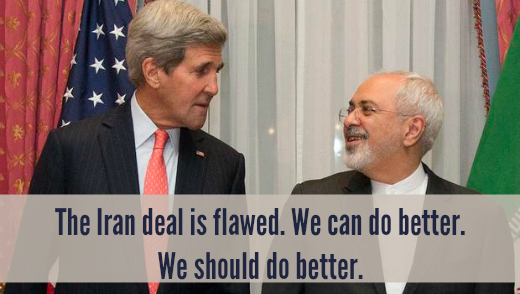There is no shortage of people with an opinion about the treaty that the United States would like to finalize with Iran. Prime Minister Benjamin Netanyahu set forth his concerns in a speech before the joint session of Congress. Senator Tom Cotton and 46 others U.S. Senators sent a letter to the Iranian leaders explaining that the Senate would have to approve any deal the president makes with them. Every pundit has an opinion about a treaty that hasn’t even been made public.
What are the flaws in the deal the president wants to ratify with Iran? News from these nuclear talks is troubling. Apparently, Iran would be granted the “right to enrich.” That means that thousands of centrifuges would continue spinning. Sure, some facilities might be closed down, but others would remain open. That would continue to give them a path to a nuclear weapon or even multiple nuclear weapons.
Another concern is Iran’s pursuit of an intercontinental ballistic missile system. This program isn’t even part of the treaty negotiations. There would be no restrictions on the development of a missile that could deliver a nuclear payload to Europe or America.
Perhaps the greatest concern was the revelation that the treaty would have a sunset provision. The administration accepted the demand by Iran that any restrictions on its programs be limited. They might even decide to abide by the treaty (which is doubtful), and only wait until time is up. Then they can hit the accelerator and develop nuclear weapons.
If there is a sunset provision, Benjamin Netanyahu suggested three conditions that would trigger it. “First, stop its aggression against its neighbors in the Middle East. Second, stop supporting terrorism around the world. And third, stop threatening to annihilate my country, Israel, the one and only Jewish state.” He also added that if Iran walks away from the table (very typical in a Persian bazaar), then ratchet up the sanctions.
Here’s the bottom line: the Iran deal is flawed. We can do better. We should do better.
 Listen Online
Listen Online Watch Online
Watch Online Find a Station in Your Area
Find a Station in Your Area











 Listen Now
Listen Now Watch Online
Watch Online
